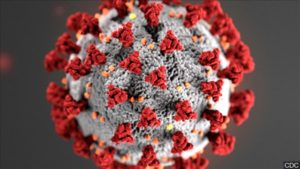Throughout the wake of COVID-19 and practicing social distancing, information and resources will be posted here under “What You Need to Know: COVID-19 in Buncombe County”
As of April 24, North Carolina Department of Health and Human Services counts 8,052 confirmed cases of COVID-19 across the state. That’s an increase of 444 cases since the April 23 numbers were released.
NCDHHS tallies 269 deaths statewide, up 16 deaths for an increase of 6.3%.
Buncombe County reported 51 lab-confirmed positive cases as of April 23. Three people have died in Buncombe County from COVID-19.
At a press conference, April 23 Governor Roy Cooper extended the Stay-at-home order through Friday, May 8, more than a week beyond its previous expiration of Wednesday, April 29.
“It’s important to get our economy moving forward. We’re helping with unemployment payments, stimulus money and the businesses that continue to be open,” Cooper said. “But I won’t risk the health of our people or our hospitals. And easing these restrictions now would do that.”
He also provided a detailed plan outlining three phases of how North Carolina might reopen once May 8 had passed. Restrictions would be progressively lifted over three phases, each lasting multiple weeks, dependent on COVID-19 trends.
But first, the state must meet certain benchmarks for the state to enter the first phase of eased restrictions, such as:
- Increase daily testing from 2,500-3,000 people per day to 5,000-7,000 per day.
- Contract tracers — double staff statewide from 250 to 500.
- Personal Protective Equipment (PPE) — adequate supplies to fill requests for at least 30 days.
- A downward trajectory of COVID-like syndromic cases for 14 days.
- The number of additional cases must decrease or show sustained leveling for 14 days.
- A downward trajectory of positive tests as a percentage of total tests over 14 days.
Phase 1
- Stay-at-home order remains in place, but people can leave home for more commercial activities (including shopping at certain retail stores).
- Retailers and services will need to implement social distancing, cleaning and other protocols.
- Gatherings limited to no more than 10 people.
- Parks can open, subject to gathering limits.
- Face coverings recommended in public.
- Restrictions remain in place for nursing homes and other congregate living settings.
- Continued teleworking encouraged.
Phase 2 – can only begin 2-3 weeks after Phase 1 begins
- Stay-at-home order lifted with strong encouragement for vulnerable populations to continue staying at home.
- Limited opening of restaurants, bars and other businesses that can follow strict safety protocols while operating at reduced capacity.
- Houses of worship and entertainment venues can host gatherings at reduced capacity.
- Number of people allowed at gatherings increased.
- Public playgrounds reopen.
- Rigorous restrictions on nursing homes and congregant care settings.
Phase 3 – can only begin 4-6 weeks after Phase 2 begins
- Guidance for vulnerable populations loosened.
- Restaurants, bars, houses of worship and other businesses can increase capacity.
- The number of people allowed at gatherings further increased.
At an April 23 press conference, the county’s emergency preparedness coordinator, Fletcher Tove said that Buncombe County developed, in partnership with the Asheville-based N.C. Institute for Climate Studies, an online symptom checker that would be available to county residents on the county website starting Monday, April 27. Tove noted that the tool would be available in English, Spanish and Russian. The tool can then recommend the next steps, including self-isolation and contacting a health provider. It will also direct a county public health nurse to follow up with the user about how symptoms improve or worsen over time.
The checker will also gather demographic and zip code information to help Buncombe officials gain a better picture of the disease’s prevalence in the community.
Residents without internet access, he said, could call the county’s Ready Team call center at 828-419-0095 to be guided through the symptom checker by phone.
Last week, Buncombe County, in coordination with the Asheville Fire Department, launched a new online emergency response program during the coronavirus pandemic, that has the potential to help residents during the ongoing emergency.
This newly launched opt-in program, Community Connect, will allow residents to create accounts and provide first responders with potentially life-saving information, as well as important information to protect the responders, such as if someone in the residence has coronavirus.
The user-friendly platform asks questions such as the number of family members, pets, special needs or medical conditions, home layout, shut-off locations for utilities and emergency contacts.The platform also includes an option for COVID-19 self-reporting, which feeds into the national COVID-19 reporting system and can help first responders know in advance if someone in the household has tested positive or is considered high risk for the disease caused by the new coronavirus.
In order to keep information up to date, participants will receive email reminders about every six months to check that their information is still accurate.
https://mountainx.com/news/from-cpp-buncombe-launches-online-emergency-platform-during-pandemic/
Roy Cooper announced at an April 24 press conference that North Carolina’s public schools will remain closed for the rest of the school year as part of an effort to slow the spread of COVID-19, the disease caused by the coronavirus.
By doing this, North Carolina joins 41 other states, three U.S. territories and the District of Columbia that have ordered or recommended that school buildings be closed for the rest of the academic year, according to Education Week. The closures are affecting around 43 million students.
https://www.newsobserver.com/news/local/article242260041.html
More Posts for Show: Asheville FM News Hour
